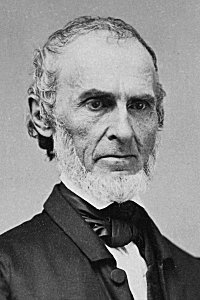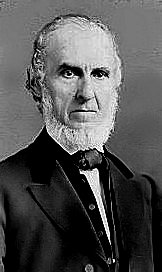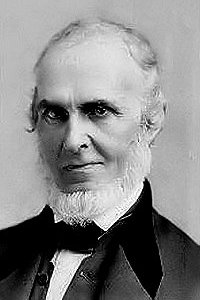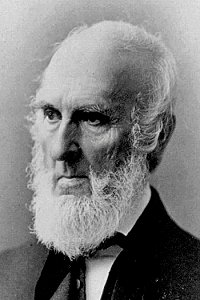Introduction


Born: December 17, 1807, near Haverhill, Massachusetts.
Died: September 7, 1892, Hampton Falls, New Hampshire.
Buried: Union Cemetery, Amesbury, Massachusetts.




Born: December 17, 1807, near Haverhill, Massachusetts.
Died: September 7, 1892, Hampton Falls, New Hampshire.
Buried: Union Cemetery, Amesbury, Massachusetts.


Whittier was the son of John Whittier and Abigail Hussey.
At age 22, he became editor of the American Manufacturer in Boston, Massachusetts. In 1830, he began editing the Haverhill Gazette and the New England Weekly Review (Hartford, Connecticut).
In 1835, Whittier was elected to the Massachusetts legislature. From 1847–59, he wrote for The National Era in Washington, DC.
He was influential in the anti-slavery movement, and served as secretary of the American Anti-Slavery Society. When he moved to Philadelphia, Pennsylvania, he edited the Pennsylvania Freeman. Mobs attacked him several times because of his views.
Whittier was known as America’s Quaker poet
: Almost 200 hymns have been formed by centos from his poems.
The pagan’s myths through marble lips are spoken,
And ghosts of old beliefs still flit and moan
Round fane and altar overthrown and broken,
O’er tree-grown barrow and gray ring of stone.
Blind faith had martyrs in those old high places,
The Syrian hill grove and the Druid’s wood,
With mothers offering, to the Fiend’s embraces,
Bone of their bone, and blood of their own blood.
Red altars, kindling through that night of error,
Smoked with warm blood beneath the cruel eye
Of lawless power and sanguinary terror,
Throned on the circle of a pitiless sky;
Beneath whose baleful shadow, overcasting
All heaven above, and blighting earth below,
The scourge grew red, the lip grew pale with fasting,
And man’s oblation was his fear and woe!
Then through great temples swelled the dismal moaning
Of dirge-like music and sepulchral prayer;
Pale wizard priests, o’er occult symbols droning,
Swung their white censers in the burdened air:
As if the pomp of rituals, and the savor
Of gums and spices could the Unseen One please;
As if His ear could bend, with childish favor,
To the poor flattery of the organ keys!
Feet red from war-fields trod the church aisles holy,
With trembling reverence: and the oppressor there,
Kneeling before his priest, abased and lowly,
Crushed human hearts beneath his knee of prayer.
Not such the service the benignant Father
Requireth at his earthly children’s hands:
Not the poor offering of vain rites, but rather
The simple duty man from man demands.
For Earth He asks it: the full joy of heaven
Knoweth no change of waning or increase;
The great heart of the Infinite beats even,
Untroubled flows the river of His peace.
He asks no taper lights, on high surrounding
The priestly altar and the saintly grave,
No dolorous chant nor organ music sounding,
Nor incense clouding up the twilight nave.
For he whom Jesus loved hath truly spoken:
The holier worship which He deigns to bless
Restores the lost, and binds the spirit broken,
And feeds the widow and the fatherless!
Types of our human weakness and our sorrow!
Who lives unhaunted by his loved ones dead?
Who, with vain longing, seeketh not to borrow
From stranger eyes the home lights which have fled?
O brother man! fold to thy heart thy brother;
Where pity dwells, the peace of God is there;
To worship rightly is to love each other,
Each smile a hymn, each kindly deed a prayer.
Follow with reverent steps the great example
Of Him whose holy work was doing good
;
So shall the wide earth seem our Father’s temple,
Each loving life a psalm of gratitude.
Then shall all shackles fall; the stormy clangor
Of wild war music o’er the earth shall cease;
Love shall tread out the baleful fire of anger,
And its ashes plant the tree of peace!
John Greenleaf Whittier, 1848